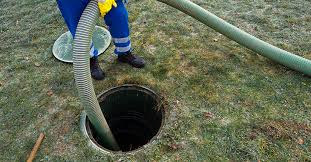Septic tanks are a crucial component of many homes and businesses, particularly in rural areas where access to public sewer systems may be limited or non-existent. Septic tanks are designed to collect and treat wastewater, separating solid waste from liquid waste and allowing the liquid waste to flow into a drain jetting field for further treatment and dispersal into the surrounding soil.
However, like any system that deals with waste, septic tanks can become full over time. When a septic tank becomes full, it can cause a range of problems, from unpleasant odors to serious health hazards. In this blog post, we’ll explore what happens if a septic tank is full, and what steps you can take to avoid these issues.
What causes a septic tank to become full?
Septic tanks become full when solid waste accumulates in the tank faster than it can be broken down by bacteria and other microorganisms. This can happen for several reasons, including:
- Lack of maintenance: Septic tanks require regular pumping to remove accumulated solids. If the tank is not pumped often enough, solid waste can build up and fill the tank.
- Overuse: Using too much water or flushing non-biodegradable items down the toilet can overwhelm the septic system and cause the tank to fill up more quickly.
- Tank size: If the septic tank is too small for the size of the property or the number of people using it, it may fill up more quickly than it should.
What are the consequences of a full septic tank?
A full septic tank can cause a range of problems, including:
- Sewage backups: When a septic tank is full, there is nowhere for wastewater to go. This can cause sewage to back up into sinks, toilets, and other fixtures in the home or business.
- Foul odors: As waste accumulates in the tank, it can emit foul odors that can permeate the surrounding area.
- Health hazards: Sewage contains harmful bacteria and pathogens that can pose a serious health risk if they are allowed to spread.
- Damage to the septic system: When a septic tank is full, it can put extra pressure on the system, causing pipes and other components to fail.
How can you tell if your septic tank is full?
It’s not always easy to tell if a septic tank is full, but there are a few signs to watch out for, including:
- Slow drains: If sinks and toilets are slow to drain, it could be a sign that the septic tank is full.
- Foul odors: If you notice foul odors coming from your drains or outside near the septic tank, it could be a sign that the tank is full.
- Sewage backups: If sewage is backing up into sinks and toilets, it’s a sure sign that the septic tank is full.
What should you do if your septic tank is full?
If you suspect that your septic tank is full, the first thing you should do is stop using water and reduce the amount of water going into the system. This can help prevent sewage backups and other problems.
The next step is to contact a professional septic tank pumping company. They can inspect your tank, determine if it’s full, and pump out the accumulated solids. Regular septic tank pumping is critical to preventing problems with your system, so it’s important to schedule this maintenance on a regular basis.
In addition to regular pumping, there are a few other things you can do to avoid septic tank problems:
- Avoid flushing non-biodegradable items down the toilet.
- Use water-saving fixtures and appliances to reduce the amount of water going into the system.
- Avoid pouring chemicals and other harmful substances down the drain.
- Have the septic system inspected regularly to catch any potential issues before they become serious.
- Avoid parking or driving heavy vehicles over the septic tank or drain field, as this can damage the system.
In summary, a full septic tank can cause a range of problems, from sewage backups to health hazards. Regular septic tank pumping and maintenance is critical to avoiding these issues and keeping your system running smoothly. If you suspect that your septic tank is full, it’s important to take action quickly to avoid more serious problems down the line. With proper care and maintenance, your septic system can provide reliable wastewater treatment for many years to come.
